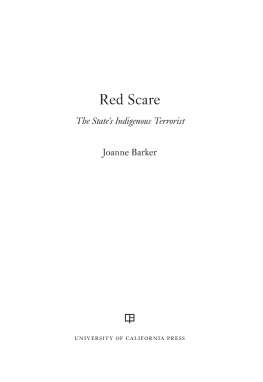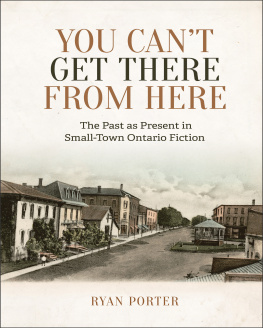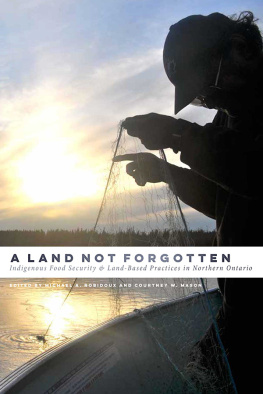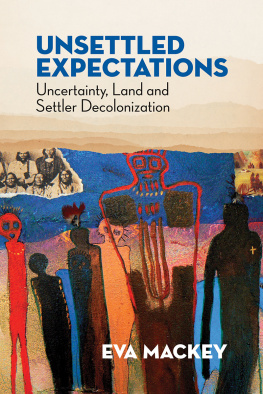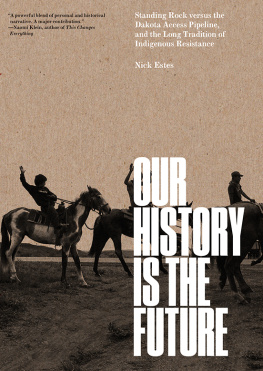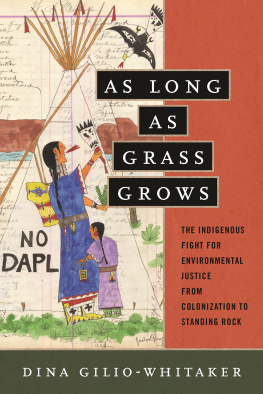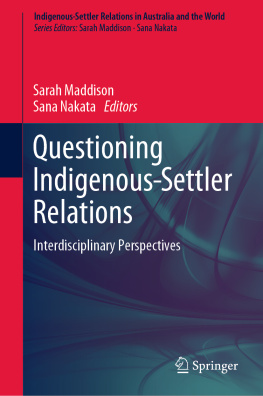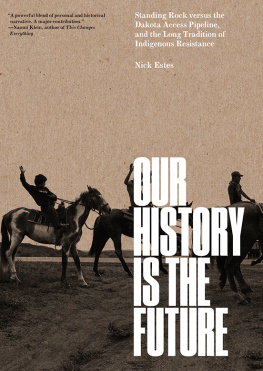

Canadas Other Red Scare

Rethinking Canada in the World
Series editors: Ian McKay and Sean Mills
Supported by the Wilson Institute for Canadian History at McMaster University, this series is committed to books that rethink Canadian history from transnational and global perspectives. It enlarges approaches to the study of Canada in the world by exploring how Canadian history has long been a dynamic product of global currents and forces. The series will also reinvigorate understanding of Canadas role as an international actor and how Canadians have contributed to intellectual, political, cultural, social, and material exchanges around the world.
Volumes included in the series explore the ideas, movements, people, and institutions that have transcended political boundaries and territories to shape Canadian society and the state. These include both state and non-state actors, and phenomena such as international migration, diaspora politics, religious movements, evolving conceptions of human rights and civil society, popular culture, technology, epidemics, wars, and global finance and trade.
The series charts a new direction by exploring networks of transmission and exchange from a standpoint that is not solely national or international, expanding the history of Canadas engagement with the world.
http://wilson.humanities.mcmaster.ca
1 Canada and the United Nations
Legacies, Limits, Prospects
Edited by Colin McCullough
and Robert Teigrob
2 Undiplomatic History
The New Study of Canada and
the World
Edited by Asa McKercher
and Philip Van Huizen
3 Revolutions across Borders
Jacksonian America and the
Canadian Rebellion
Edited by Maxime Dagenais
and Julien Mauduit
4 Left Transnationalism
The Communist International
and the National, Colonial, and
Racial Questions
Edited by Oleksa Drachewych
and Ian McKay
5 Landscapes of Injustice
A New Perspective on the Internment
and Dispossession of Japanese
Canadians
Edited by Jordan Stanger-Ross
6 Canadas Other Red Scare
Indigenous Protest and Colonial
Encounters during the Global Sixties
Scott Rutherford

Canadas Other Red Scare

Indigenous Protest and Colonial Encounters during the Global Sixties
SCOTT RUTHERFORD
McGILL-QUEENS UNIVERSITY PRESS
Montreal & Kingston London Chicago
McGill-Queens University Press 2020
ISBN 978-0-2280-0405-9 (cloth)
ISBN 978-0-2280-0406-6 (paper)
ISBN 978-0-2280-0511-7 (ePDF)
ISBN 978-0-2280-0512-4 (ePUB)
Legal deposit fourth quarter 2020
Bibliothque nationale du Qubec
Printed in Canada on acid-free paper that is 100% ancient forest free
(100% post-consumer recycled), processed chlorine free
This book has been published with the help of a grant from the Canadian Federation for the Humanities and Social Sciences, through the Awards to Scholarly Publications Program, using funds provided by the Social Sciences and Humanities Research Council of Canada.

We acknowledge the support of the Canada Council for the Arts.
Nous remercions le Conseil des arts du Canada de son soutien.
Library and Archives Canada Cataloguing in Publication
Title: Canadas other red scare : Indigenous protest and colonial encounters during the global sixties / Scott Rutherford.
Names: Rutherford, Scott, 1979- author.
Series: Rethinking Canada in the world ; 6.
Description: Series statement: Rethinking Canada in the world ; 6 | Includes bibliographical references and index.
Identifiers: Canadiana (print) 20200329383 | Canadiana (ebook) 20200329553 | ISBN 9780228004066 (softcover) | ISBN 9780228004059 (hardcover) | ISBN 9780228005117 (PDF) | ISBN 9780228005124 (EPUB)
Subjects: LCSH: Protest movementsOntarioKenoraHistory 20th century. | LCSH: Civil rights demonstrationsOntario KenoraHistory20th century. | LCSH: Indigenous peoples OntarioKenoraSocial conditions20th century. | LCSH: Kenora (Ont.)Race relationsHistory20th century. | LCSH: Kenora (Ont.)Ethnic relationsHistory20th century.
Classification: LCC FC3099.K46 Z7 2020 | DDC 971.3/11200497dc23
Contents
Acknowledgments
This project began as a doctoral dissertation a decade and a half ago. In the time it has taken to get from then to now, I have benefitted tremendously from the generosity, kindness, sage advice, and patience of so many people that I wont be able to name most of them here.
In the first phase of this books life as a dissertation, my research was aided by a Social Sciences and Humanities Research Council graduate scholarship. In the second phase, I received a stipend from the Fund for Scholarly Research and Creative Work and Professional Development at Queens University for adjunct instructors. It allowed me to write last summer while only doing minimal teaching related work.
I was honoured to work with such a supportive team at McGill-Queens University Press which included Jonathan Crago, Kathleen Fraser, Susan Glickman, and three anonymous readers. Susans skills as an editor were especially appreciated. Francine Berish at Queens University Library was extremely patient in helping me create the map used in this book just as the university was closing for its winter break. An earlier verision of appeared in Dan Berger (ed.), Hidden Histories of the 1970s. All errors in this book are mine alone.
Over the years, archivists and librarians in numerous institutions across North America aided my research significantly. Special thanks to Don Colborne who, when this project was still in its very early days, lent me boxes of his papers from several key moments which shape this book. I deeply regret that I was not able to return them before they were destroyed in a fire at my parents house in Kenora in 2012. It was a fire that also, tragically, took my fathers life.
Dad, I miss you.
This book was on pause for a while as life took several unexpected turns, as it does for most of us. I have been lucky to have the support of friends and family in many different parts of the world, but especially in Kenora, Winnipeg, Toronto, Hamilton, Havana, Brampton, Montreal, and in Kingston, where I have lived longer than I ever expected to. David Austin and Sean Mills both deserve special thanks. They have been friends for many years. We dont see each other as much as we used to, but conversations with them shaped this book from start to finish.
In 2016, Barrington Walker and Georgina Riel offered me a desk in their air-conditioned basement as an escape from another humid Kingston summer. Im not sure how much writing Barrington and I accomplished over those months, but his and Georginas guidance and friendship came at an especially important moment.
Next page



